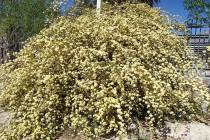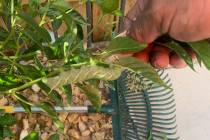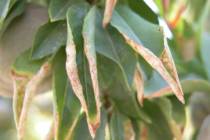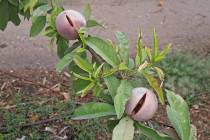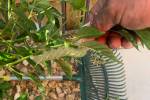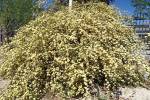Call plant expert to verify aloe’s variety
Q : Would you be able to tell me if my wild aloe plant is a "true" aloe vera or what variety it is? I heard that there is only one aloe type that is good for eating or drinking the juice since the other varieties may be slightly toxic or at least don't have the same health benefits. Is that true? I am attaching photos. They have long stalks with red blossoms in the spring time.
A: I looked at your picture. It is impossible to confirm if it is aloe vera or not with about 400 different aloe species out there. You would need to have the flowers and a good plant taxonomist confirm it to be accurate. Knowing it has red flowers is not enough.
Aloe vera does have red flowers but so do several other aloes and they can vary from yellow through orange and into red. I understand it is commonly used as a home treatment for burns and skin discomfort as well as a laxative. However since there is some contradictory scientific evidence on its benefits I really can't recommend it.
Q: I have a beautiful loquat tree on the side of my house. I thin out the fruit the best I can and it produces a lot of fruit. My problem is that the branches are starting to reach the sidewalk and will need pruning. When is the best time to prune it? It never loses its leaves in the winter like my other stone fruits so I'm not sure when or even how to prune. When thinning the fruit out is it better to remove whole clusters or thin the cluster itself?
A: You are right. That is a great looking loquat. It must be on the east or north side. They can't take the heat all that well and usually develop borers quite easily but produce a delicious fruit.
You can prune that now with no problem or anytime before flowering. You will prune at a crotch or where the limbs come together.
I have never heard of thinning loquat and would suspect that it would require little to no thinning. I am not sure if thinning would give you any larger fruit or not. It doesn't work to thin figs for instance.
Bob Morris is an associate professor with the University of Nevada Cooperative Extension. Direct gardening questions to the master gardener hot line at 257-5555 or contact Morris by e-mail at morrisr@unce.unr.edu.









